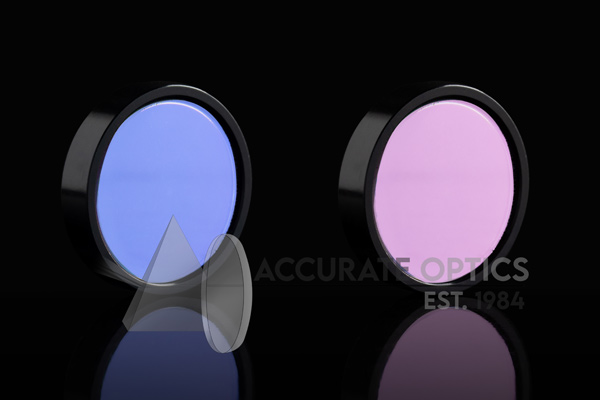How Thin Film Optics Support Emerging Industries
Table of Contents
In the dynamic landscape of emerging industries, innovation and precision are the bedrock for advancement. Thin Film Optics emerge as pivotal components, empowering and revolutionizing diverse sectors on the cusp of transformation. These finely-tuned optical coatings, engineered at nanoscale precision, serve as catalysts in driving efficiency, functionality, and breakthroughs across burgeoning industries. Let’s explore the profound impact of Thin Film Optics and their role in supporting the evolution of these emerging sectors.
Precision in Emerging Industries
Emerging industries, characterized by rapid growth and innovation, demand cutting-edge technologies to thrive. Thin Film Optics, tailored for specialized applications, cater to the unique needs of these industries by providing precise control over light properties, opening doors to unparalleled advancements.
The Significance of Thin Film Optics
- Enhanced Optical Performance: These coatings optimize light transmission, minimize reflections, and manipulate wavelengths, ensuring superior clarity and accuracy in various optical systems.
- Customizability: Tailored coatings cater to specific spectral requirements and functionalities, adapting seamlessly to the distinct demands of emerging industries such as renewable energy, quantum computing, and wearable technology.
- Durability and Efficiency: Thin Film Optics offer lightweight and durable solutions, essential in sectors where efficiency and reliability are paramount.
Applications Across Emerging Sectors
- Renewable Energy: Thin Film Coatings enhance the efficiency of solar panels and optical components in renewable energy systems, maximizing light absorption and energy conversion.
- Quantum Computing: These coatings contribute to optical elements in quantum computing, enabling precision in manipulating light for quantum information processing.
- Wearable Technology: Optics in wearable devices benefit from coatings that improve display clarity, extend battery life, and enhance sensor functionalities.
Advancements Driving Innovation
Continuous innovation in Thin Film Optics is pivotal for supporting the ever-evolving needs of emerging industries. Advances focus on broader spectral ranges, increased durability, and multifunctional coatings tailored for specific applications.
Collaborative Development and Integration
Partnerships between Thin Film Coating manufacturers, industry leaders, and research institutions foster collaboration and integration of cutting-edge optical solutions into emerging industries.
Future Prospects
The future holds immense promise for Thin Film Optics as these coatings evolve to meet the evolving demands of emerging industries. Anticipate advancements that fuel groundbreaking innovations, contributing significantly to the progression of these sectors.
Conclusion:
Thin Film Optics emerge as instrumental assets, propelling emerging industries towards unparalleled innovation and efficiency. Their ability to enhance precision, versatility, and reliability in optical systems serves as a linchpin for driving progress in these transformative sectors. As these coatings continue to evolve, their transformative influence will undoubtedly remain instrumental in shaping the future landscape of emerging industries.
Important FAQs:
1. What is Thin Film Optics?
– Thin film optics involves the application of thin layers of materials onto optical surfaces to manipulate the behavior of light, enhancing the performance of optical components.
2. How Do Thin Film Optics Support Emerging Industries?
– Thin film optics support emerging industries by providing tailored solutions for optical components used in cutting-edge technologies, such as augmented reality (AR), virtual reality (VR), autonomous vehicles, and quantum computing.
3. What Types of Thin Film Coatings Are Used in Emerging Industries?
– Emerging industries utilize a variety of thin film coatings, including anti-reflective coatings, high reflectivity coatings, polarizing coatings, dichroic coatings, and optical filters, to optimize optical performance and functionality.
4. How Do Anti-Reflective Coatings Benefit Emerging Technologies?
– Anti-reflective coatings improve the clarity and visibility of optical displays and sensors in emerging technologies like AR and VR, reducing glare and enhancing user experience.
5. Can Thin Film Optics Enhance the Performance of LiDAR Systems in Autonomous Vehicles?
– Yes, thin film optics can enhance the performance of LiDAR (Light Detection and Ranging) systems in autonomous vehicles by optimizing light transmission, reducing reflection losses, and enhancing sensor accuracy.
6. What Role Do Polarizing Coatings Play in Emerging Display Technologies?
– Polarizing coatings are integral to emerging display technologies such as OLED (Organic Light-Emitting Diode) and MicroLED displays, enabling precise control over light polarization and improving display contrast and color reproduction.
7. How Do Dichroic Coatings Support Quantum Computing Applications?
– Dichroic coatings are used in quantum computing applications to manipulate and control photons, enabling the development of components such as quantum gates and optical qubits for quantum information processing.
8. Are Optical Filters Utilized in Emerging Sensing Technologies?
– Yes, optical filters are essential in emerging sensing technologies for spectral filtering, wavelength selection, and noise reduction, enhancing the sensitivity and accuracy of sensors used in environmental monitoring, healthcare, and industrial automation.
9. Can Thin Film Optics Improve Energy Efficiency in Renewable Energy Technologies?
– Yes, thin film optics can improve energy efficiency in renewable energy technologies such as solar cells and photovoltaic panels by increasing light absorption, reducing reflection losses, and enhancing overall energy conversion efficiency.
Thank you for exploring how thin film optics support emerging industries with us! If you have any further questions or topics you’d like to learn about, feel free to reach out.








